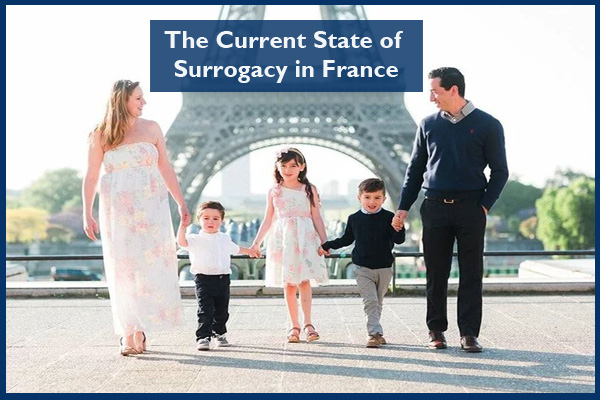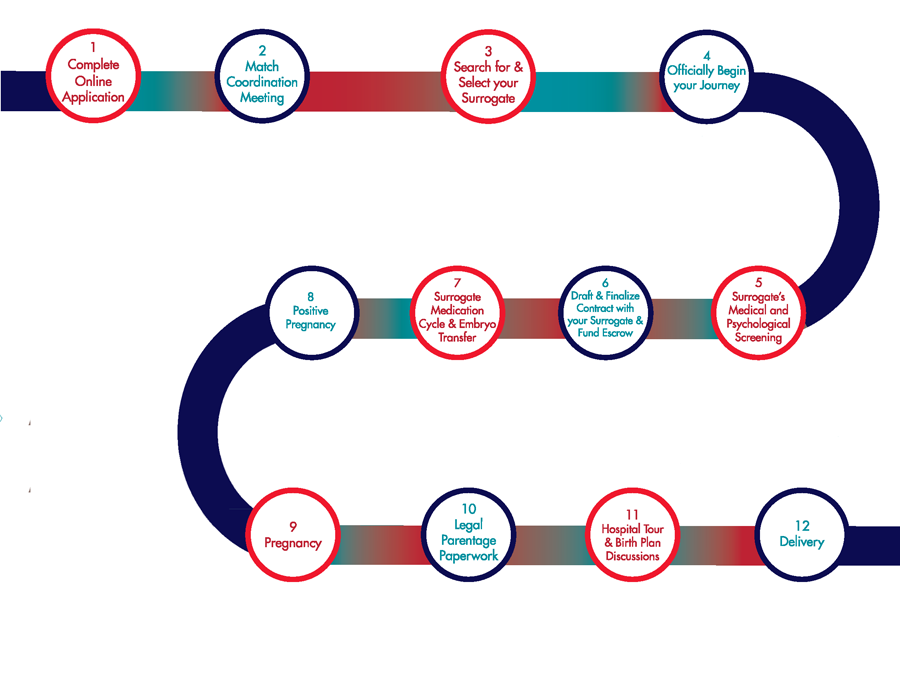Surrogacy in France: why it may not be the right option for you at the moment?
Surrogacy has become the most sought-after option for all childless couples across the globe. Even while being cost-effective, its benefits have attracted millions of couples in cherishing the most awaited happiness of their lives.
Still, there is a big variation in regard to countries that permits or prohibits surrogacy within their legal territories. About surrogacy options in France, a country known for its strict regulations on reproductive technologies, has implemented a complete ban on surrogacy. That said, the following parts of this blog examine the current state of surrogacy in France, delving into the legal framework, ethical considerations, and social implications associated with this controversial topic.
Is surrogacy legal in France?

This further means that any surrogacy contract, no matter if it is commercial or altruistic, stands as unenforceable within the legal territories of the country. On the other hand, the legislation related to surrogacy in the country takes surrogacy as a strict violation of public order, emphasizing the importance of protecting the integrity of the family and the child’s best interests. That said, surrogacy-related acts, such as advertising or brokering services, are also criminalized.
Surrogacy Options in France
Why was Surrogacy get banned in France?
The surrogacy process in France got banned due to certain ethical and social reasons in France. That said, the following aspects were further considered by the government before prohibiting surrogacy-related practices in the country.
The exploitation of surrogate mothers: France aims to prevent the potential exploitation of women involved in surrogacy arrangements. That said, concerns are raised about the possibility of vulnerable women being coerced or manipulated into becoming surrogates due to financial desperation or other factors. Besides, the ban seeks to protect women from being commodified, reducing the risk of their bodies and reproductive capacities being treated as commodities.
Child’s Best Interests: French law prioritizes the well-being of the child and emphasizes the importance of stable family structures. This is where surrogacy arrangements involving multiple parties, especially when they are of different nationalities, can create complex legal and emotional situations for the child. Hence, the ban on surrogacy is intended to avoid potential conflicts and challenges that might arise from these intricate family dynamics.
Non-Commercialization of Reproduction: The ban on surrogacy reflects France’s stance against the commercialization of reproduction. Moreover, it aims to prevent the practice of treating childbirth as a market transaction where money is exchanged for the services of a surrogate mother. That said, this approach aligns with the belief that human reproduction should not be driven by financial motives, but rather by the natural and emotional bonds within a family.

Given all such allegations, the government were forced to bring on certain regulations and guidelines to ban any related practice in the country.
Social Implications Due to the Ban on Surrogacy in France
The prohibition of surrogacy in France has both intended and unintended social consequences. Moreover, few supporters of the ban argue that it preserves traditional notions of family and protects children’s rights by avoiding potential conflicts arising from complex family structures. Additionally, the ban ensures that the focus remains on adoption and other forms of family building that do not involve third-party reproduction.
However, the ban has resulted in French citizens seeking surrogacy services abroad, particularly in countries where it is legally permitted. This phenomenon, often referred to as “reproductive tourism,” raises questions about equitable access to reproductive technologies and the potential exploitation of women in countries with less stringent regulations. On the other hand, it also highlights the need for a comprehensive discussion on surrogacy within the French context to address the complex ethical, legal, and social aspects of the practice.
What could be the possible Reforms and Alternatives?
Advocates for reform argue that the absolute ban on surrogacy in France may need to be revisited to accommodate the changing societal landscape. Besides, proposals have been put forth for the introduction of regulated and ethical surrogacy agency in France, such as the establishment of a system similar to altruistic surrogacy, where the surrogate is not financially compensated beyond reimbursement of expenses. This approach aims to address ethical concerns while allowing individuals the option to pursue surrogacy within a regulated framework.
Additionally, proponents suggest the development of comprehensive legislation that protects the rights and interests of all parties involved. Such legislation could include safeguards against exploitation, strict eligibility criteria for intended parents, and the establishment of legal contracts that clearly outline the rights and responsibilities of all parties. That said, this approach would aim to strike a balance between protecting women, respecting reproductive autonomy, and safeguarding the well-being of the child.
On the other hand, intended parents can look forward to countries like Georgia, Ukraine and Cyprus in order to pursue their parenthood aspirations. Besides offering affordable surrogacy options, these countries further ensure full protection of the intended parent’s rights.
Final words
Surrogacy in France remains a contentious issue, with a complete ban in place due to legal, ethical, and social concerns. While proponents of the ban argue that it protects against the commodification of children and the potential exploitation of women, critics argue for a more nuanced approach that allows for regulated and ethical surrogacy.
That said, as societal attitudes continue to evolve and reproductive technologies advance, it is essential to engage in a comprehensive and open dialogue to address the complexities surrounding surrogacy and its potential place within French society.


